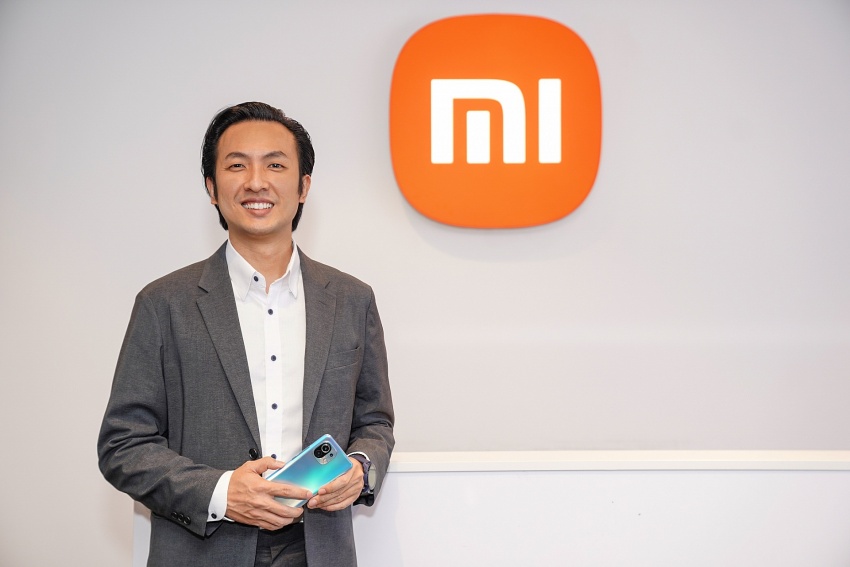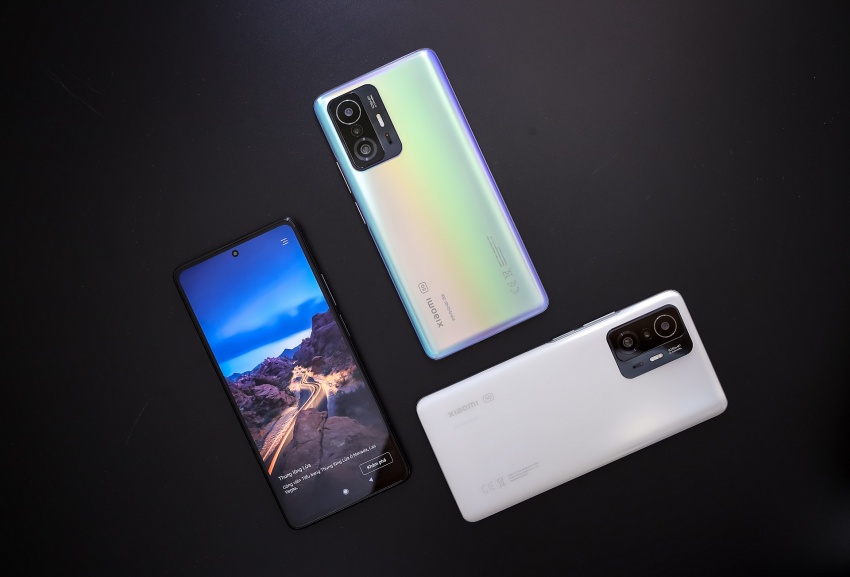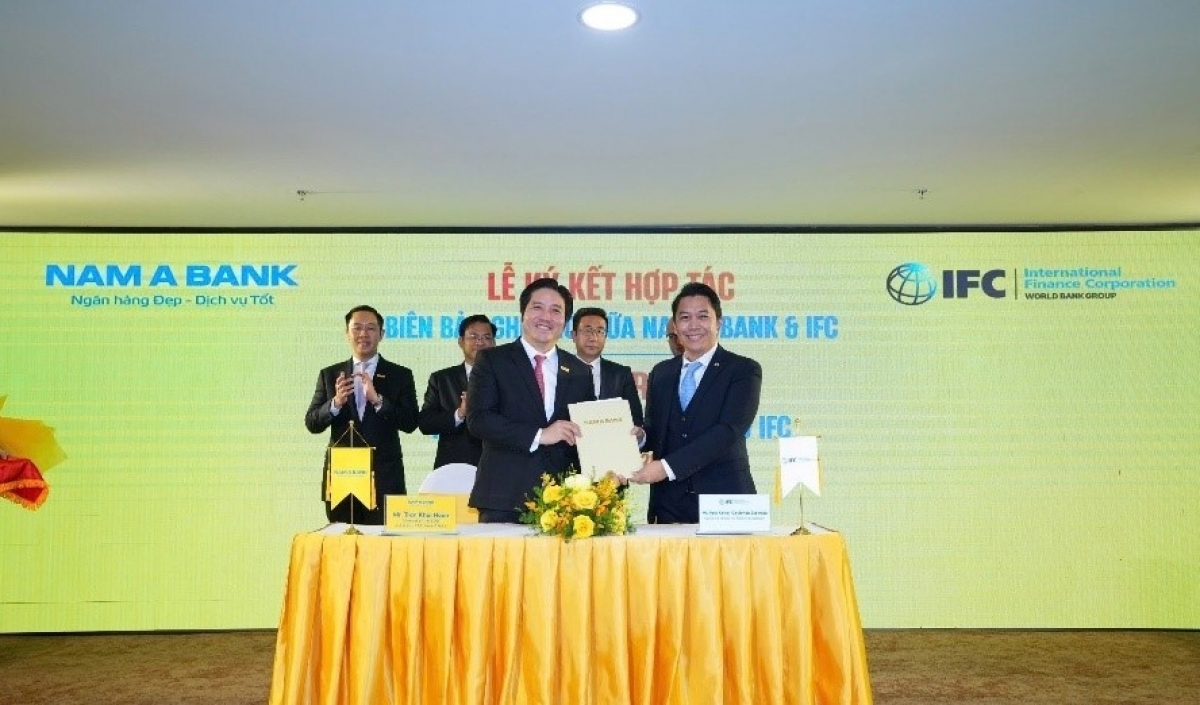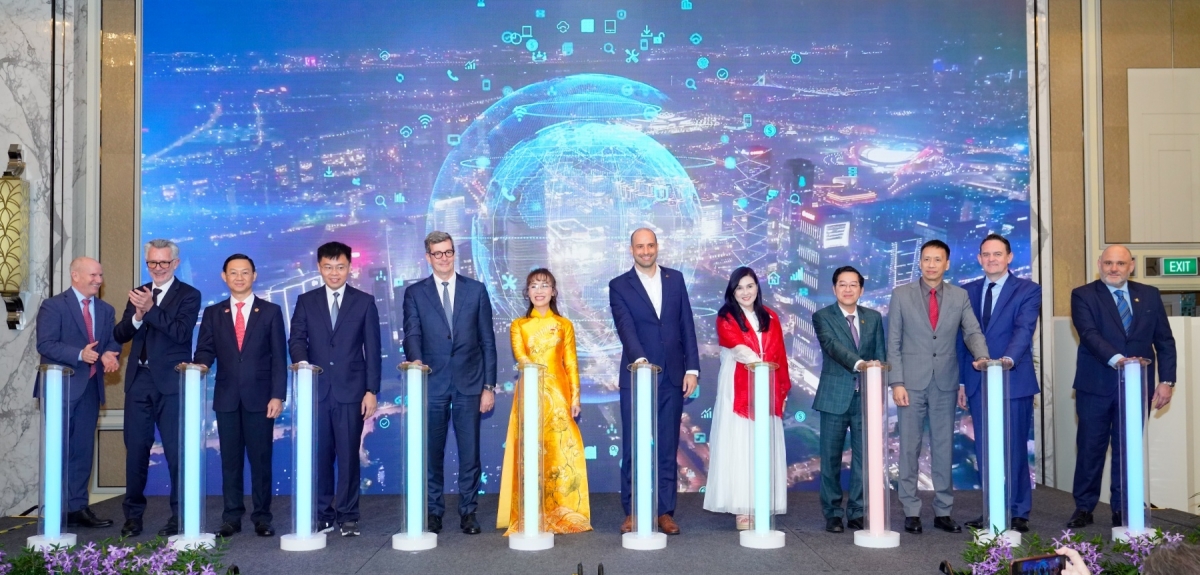INTERNATIONAL INVESTMENT
AND PORTAL
 KM Leong, general manager for Southeast Asia of Xiaomi International. What milestones did Xiaomi achieve in 2021 for the Vietnamese market?
KM Leong, general manager for Southeast Asia of Xiaomi International. What milestones did Xiaomi achieve in 2021 for the Vietnamese market?
In 2021, we saw a growth of 67 per cent on-year for the Vietnamese smartphone market. Initial figures revealed that we had shipped around 2.5 million smartphone units into the market in 2021
Our target in 2022 is to become the number one smartphone brand in the market. To do so, we need to increase our coverage to at least 25 per cent from the current 15 per cent. The figure could be higher because our competitors also are growing parallelly. In 2022, our targeted revenue is about $800 million.
We are focusing on improving our efficiency, bringing more products to the market, and increasing the number of products in the IoT eco-system to 100 in 2022, from more than 75 currently.
About 11 years ago, Xiaomi started its business with the flagship model Xiaomi Mi1, with the most advanced Qualcomm 8 series chipset at just 65 per cent of our competitors' prices.
Three years later, in 2012, we found that we must reach as many consumers as we can. That’s why we decided to introduce a mid-range series with the Redme and the Redme Note. Thus, we could provide feature-rich products with more affordable pricing.
Since Q4 of 2020, we wanted to return to our origins. The Xiaomi 10T series, Mi11, and 11T series were a few feature-rich flagship models with very affordable prices that we offered to consumers by that time.
What is the development strategy of Xiaomi in the coming time?Our business philosophy is “Innovation for everyone”. Therefore, we aim for high-quality products at affordable prices, accessible for as many customers as possible.
We are focusing on expanding and promoting our brand name in the Vietnamese market with many influencers, comprehensive marketing, and PR events.
Besides this, we will continue to expand our team in Vietnam. Our team increased almost twice since the beginning of 2021. In 2022, we will have a team of at least 60 members. The figure seems insignificant for other companies; however, it is meaningful for our high-value performance.
How is the Vietnamese market positioned, and how will it be promoted in the coming time?We have been selling our products to 116 countries in the world. Among those, 18 are identified as key markets. In 2021, this number raised to 25, and this year we target 30 key markets globally.
Xiaomi became the number one smartphone in Malaysia and Thailand last year. This year, our priority is Vietnam. Moreover, Vietnam is not just a market for sales and marketing but also many other activities.
If comparing Vietnam's internet services to Thailand, Malaysia, and Indonesia, Vietnam has a lot of opportunities. We have our market here and we need to further expand our business by developing our team. Moreover, we are creating a safer data privacy environment for our users by setting up a technical operation team in Singapore to manage all data centres and the users’ information.
This centre is fully compliant with the GDPR standard from European Union. We are also drafting a whitepaper that is compliant with data security. All of these activities are to offer a strict and professional data security commitment to the users. We believe that we can speed up the internet service expansion in Vietnam with all of those efforts.
How is your assessment of Xiaomi’s perspective in the coming time?Xiaomi is now ranked within the Global Fortune 500 at position 338. Among those companies, Xiaomi is one of the youngest companies to reach this position. This is mainly measured by company revenue per year. Looking at our business, we have seen that our position is growing fastly. Identified since the day that Xiaomi was born, the company is not only a smartphone manufacturer but a mobile internet company. We are now reaching our development strategy with a twin development strategy, focusing on smartphones and IoT.
Today, smartphones still contribute the majority to the company's revenue, but internet service revenues also contribute around 20 per cent to our total revenue. We are now more dependent on IoT devices as well as services. That is why Xiaomi is more balanced between smartphones and IoT. In terms of internet services, we are working with many companies through our MIUI's capabilities. Internet services using MIUI had reported a revenue of more than $1.1 billion so far, with a growth of 27 per cent on-year. This is a very promising growth and it proves that our strategy is well working.
From the beginning of the company, we have promoted Xiaomi as an internet company that consistently attracts more users to our websites and applications. This is the nature of an internet company. However, Xiaomi is doing more than that. We don’t simply offer websites or applications, but we create smartphone devices and let more users use those devices combined with our internet services. When more users use smartphone devices, it creates a lot of potential for internet services. This is our core value and we keep it consistent in our development strategy.
“Innovative technology accessible for everyone” – that is Xiaomi's development concept. Could you please tell us more about this?This concept is the reason why we can have a model with outstanding chipset and accessories at a very competitive price.
Among those, the Redmi Note series offers affordable devices with outstanding advances at competitive prices. Efficiency is the foremost factor that we consider in a range of our product system, from the design step to the market.
To do that well, we have been listening to the reactions of our users. Thus, we are offering the products that our users want, which is what helps Xiaomi develop steadily.




















